‘Doctor Who’: Why It's So Hard to Cast the 13th Doctor, Plus Who Wants to See Inside the TARDIS Next

The time-traveling Time Lord at the center of Doctor Who has faced plenty of challenges during his five-decades-and-counting career as a sci-fi icon. But the character is approaching an especially important crossroads with the impending launch of the show’s 10th season in April on BBC America. It’s already been announced that this year will be the last for the show’s guiding creative force, Steven Moffat, as well as its current star, Peter Capaldi. And while Moffat’s replacement is official — Broadchurch’s Chris Chibnall inherited the enviable/torturous job — the identity of the next Doctor has yet to be decided. That’s because a host of long-simmering issues are confronting the franchise’s future that must be making their presence felt in the decision process. We’ve broken down the five reasons why casting the next Doctor is going to be complicated, and then offered up our own five suggestions for whom we want to see inside the TARDIS.
Related: Justin Chatwin Talks Suiting Up as a Superhero in ‘Doctor Who: The Return of Doctor Mysterio’
1. Fans are craving diversity
The initial 2013 announcement that Capaldi would be replacing the previous Doctor, Matt Smith, was met with no small amount of disappointment. Not because Capaldi is unpopular, mind you. No, in the run-up to the reveal of the new Doctor’s identity, many Whovians — including those as famous as Helen Mirren — had primarily been hoping that Doctor Who would travel to truly uncharted territory by casting someone other than another white dude. With Capaldi’s announced departure, those calls for diversity are already being revived, especially in light of Moffat’s recent confirmation that an unnamed black actor (who, rumor has it, may have been Chiwetel Ejiofor) was approached to play the Eleventh Doctor prior to Smith’s casting. Although fans have mostly been happy — or, at the very least, patient — with Capaldi’s tenure, that patience will likely come to an abrupt end if Chibnall doesn’t get serious about shaking up the status quo with a bolder casting choice for the Thirteenth Doctor. — EA
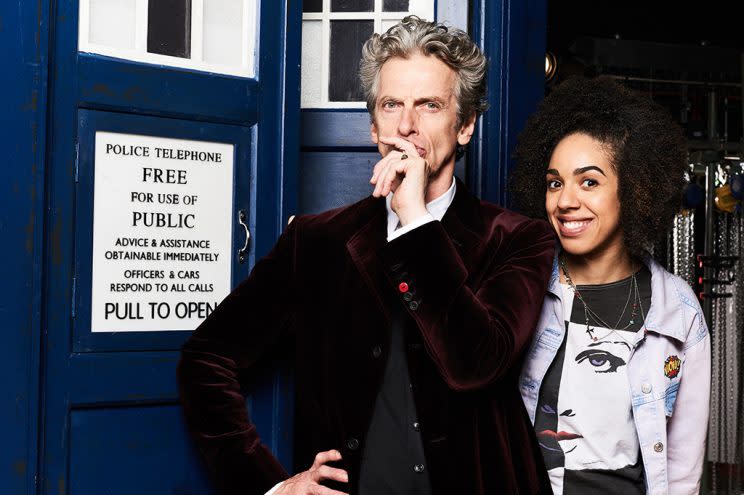
2. The new Who needs to be be famous … but not too famous
Performers already closely associated with other major projects need not apply. A potential Who shouldn’t be too well known, but then, not a total unknown either. Before Matt Smith became the youngest Doctor in 2009, he’d had roles in a few British TV productions, and there was plenty of well-received London theater work on his résumé. But outside the U.K., his was not a recognizable name. That’s why the dream casting for many fans — Idris Elba as the Doctor — is almost certainly never going to happen … too internationally famous at this point. Ditto Tom Hiddleston, Eddie Redmayne, Martin Freeman, Stephen Fry, Benedict Cumberbatch, and talk show host James Corden, all long-shot favorites of fans, according to a British oddsmaker. — KP
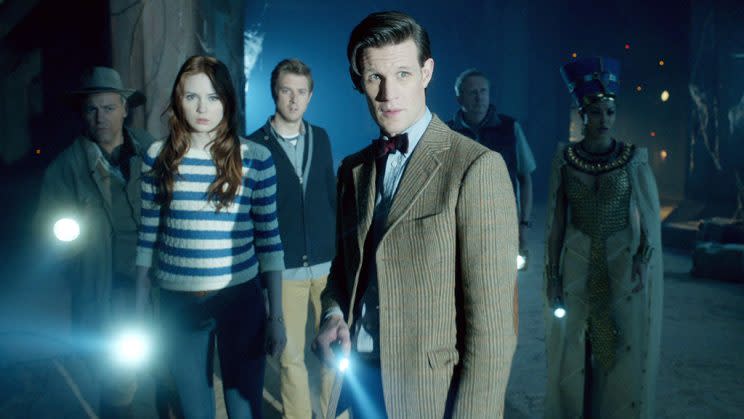
3. Youth is a factor
David Tennant’s Tenth Doctor wasn’t just beloved among fans — he was also popular with the BBC brass, who are reportedly eager to travel back to the days of a younger, sexier Time Lord. As a network mole told the London tabloid the Mirror: “BBC management wants a return to the format from the David Tennant era, when you had a dashing male lead and young female companion.” The article also notes that the show’s merchandising returns have dipped precipitously since the 58-year-old Capaldi became the Doctor, a trend that, say, a 28-year-old Doctor might be able to reverse. That means that Chibnall has a specific age range (and, apparently, gender dynamic) he’ll need to pluck his new Doctor from in order to satisfy his minders at the network. — EA

4. Actors know the Doctor is an iconic role, but they worry about being typecast
Even David Tennant, whose childhood love of Doctor Who sparked his interest in becoming an actor, was warned by his agent that playing the Doctor could have some big downsides. So much as a minor role on the show could equal, “I’ll never work again,” Tennant told the Guardian in 2009 about his rep’s heads-up. That hasn’t been the case for Tennant (voted the best Doctor ever by fans in Doctor Who Magazine) or the Doctor who preceded him, Christopher Eccleston. Still, Eccleston did leave after one season of relaunching the classic series, partly out of concern about being typecast. So it stands to reason that where a performer is in his or her career is key to signing on. Being unknown for anything else probably increases the odds of being known primarily for Who even after your particular regeneration ends, while having a couple of noteworthy roles makes it more likely you’ll strike that delicate balance of Who fame and continued post-Who success. — KP

5. The limits of regeneration
The 1976 episode “The Deadly Assassin” put in place a piece of mythology that Doctor Who has stood by for the subsequent four decades: Every Doctor is granted 12 regenerations before he is all out of new faces. It’s even a rule that Russell T Davies chose to play by when he restarted the then-dormant franchise in 2005, making Eccleston the Ninth Doctor rather than beginning anew with another First Doctor. David Tennant then became the Tenth Doctor, followed by Smith as No. 11 … who, in fact, was No. 13 as per Moffat’s revised regeneration math, which makes room for John Hurt’s War Doctor and Tennant’s extra regeneration in the episode “Journey’s End.” Luckily, on Smith’s way out the door in “The Time of the Doctor,” he found a way to buy himself an extra life — or possibly 12; it’s not entirely clear — from the Time Lords themselves. So that resets the regeneration clock for a bit, but it’s a limitation that the show will have to continue to be aware of … and find convoluted ways around. — EA
Related: Steven Moffat Shoots Down Both a Peter Capaldi ‘Veep’ Cameo and Peter Jackson Directing ‘Doctor Who’
And the Next Doctor Could Be…
Hayley Atwell
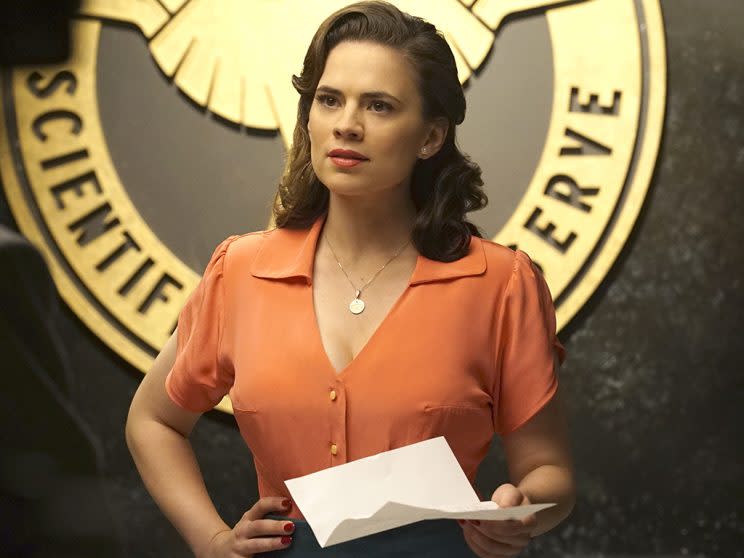
The once (and hopefully future) Peggy Carter has previously expressed a desire to be the first actress to shatter Doctor Who’s glass ceiling, and — judging by Twitter — fans are all for it.
Please make Hayley Atwell’s dream come true, @bbcdoctorwho. Let her become the first female Doctor. pic.twitter.com/7IsnCJhNqT
— chrisi (@arealdarlingcap) January 31, 2017
Joining the campaign for #HayleyAtwell to be the new #DoctorWho @BBC please make this happen!
— Mike Nudd (@mikelosaurus) February 1, 2017
And now your daily reminder that Hayley Atwell should be the next #DoctorWho pic.twitter.com/lqzD2MQPhY
— Nick Brent (@nickcbrent) February 3, 2017
Besides her oft-demonstrated skill at keeping the world safe from enemies foreign, domestic, and interdimensional, Atwell would also potentially attract more of the sizable Marvel Nation population to Who-land. And with both Agent Carter and Conviction having been cut from ABC’s lineup, British television would be ready to welcome her back to her native land with open arms. — EA
Johnny Flynn
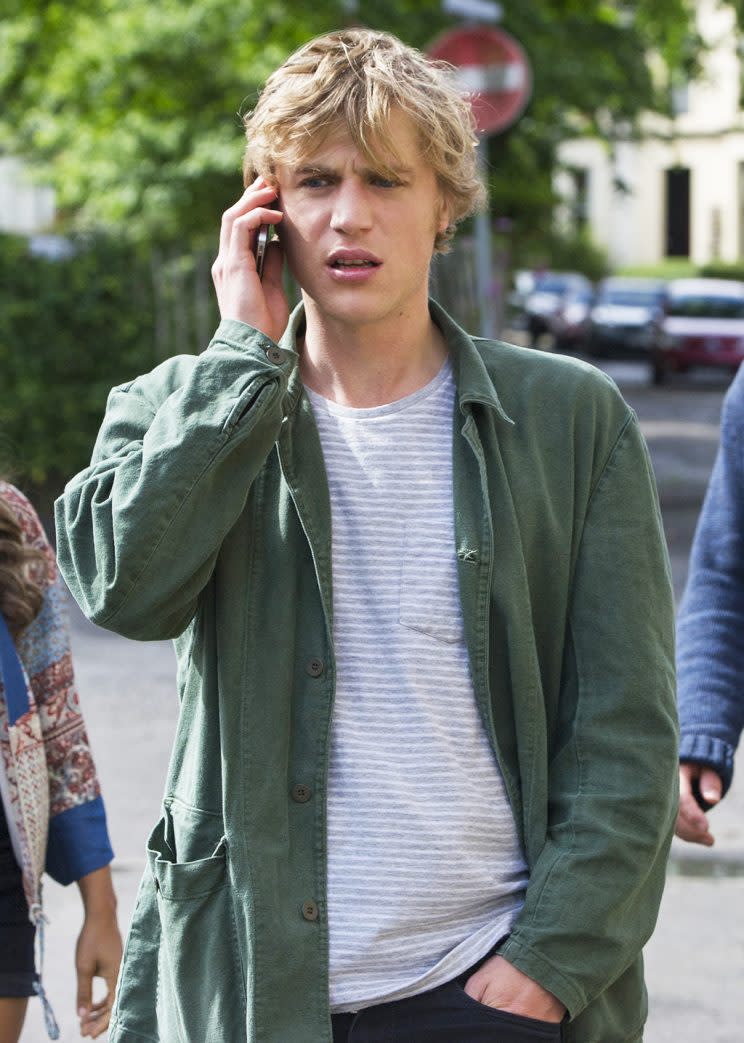
Like many younger British actors these days, Flynn has a loyal audience as a folksinger/songwriter. (His latest album, Sillion, will be released in March.) But if you need just one piece of evidence of his Who-worthiness, it can be found in the Netflix romantic comedy series Lovesick, in which his Dylan, with the help of his friends, retraces his romantic history after he’s diagnosed with an STD and has to inform his former sexual partners. The series was previously titled Scrotal Recall, but don’t let the title or the simple plot line fool you: It’s sweet, funny, and romantic, and Flynn’s charm and endearing goofiness would make for a fine Who, in the vein of a certain bow-tied, fez-topped Doctor from the past. — KP
Ashley Thomas
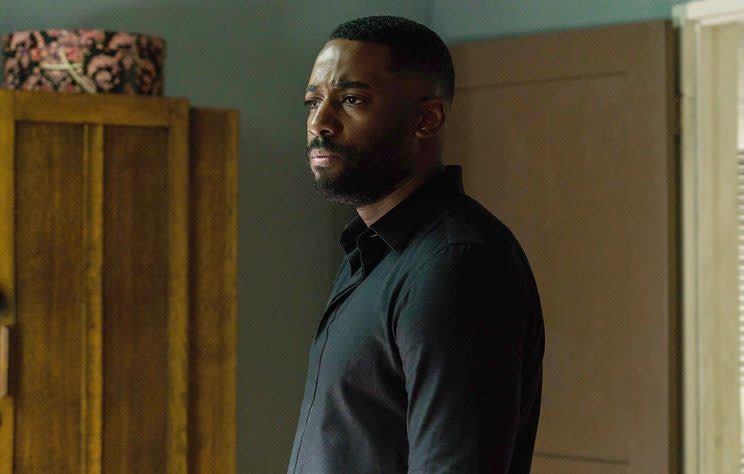
Also known by his stage name as the rapper Bashy, Thomas was a scene stealer in HBO’s limited series The Night Of playing Calvin, the Rikers inmate who pretends to befriend Riz Ahmed’s Naz before setting him on fire. He’s currently turning in another fine performance as Isaac, the brother of Corey Hawkins’s Eric Carter, the hero of Fox’s new 24 reboot, 24: Legacy. Both roles suggest that Thomas would make for a more serious, dramatic, and intense regeneration of the Doctor. — KP
Tina Desai

Even among the crowded eight-person ensemble on Netflix’s cult series Sense8, Desai’s sharply etched performance as Kala — a woman torn between two loves, one in the physical world and one in her head — stands out. Desai demonstrates a steely resolve in the face of bizarre circumstances that would serve her well as the Doctor. Her casting would also reflect the global nature of the franchise, which has traveled well beyond England and America to Mexico, Australia, India, and all points beyond. — EA
Jacob Anderson

Another actor-musician — his well-received 2016 album You’re a Man Now, Boy was recorded under his stage name, Raleigh Ritchie — Anderson is best known for his role as Grey Worm, Daenerys’s loyal pal, on Game of Thrones. His devotion, as well as his calm, stoic nature — dude doesn’t even get upset about being called Grey Worm! — has made him a fan-favorite supporting character on the series. It’s that onscreen vibe, along with what he’s shown to be Grey Worm’s serious fighting skills, that could make for a Doctor who’s ready to be fierce and funny. — KP
Doctor Who premiers Saturday, April 15, on BBC America.
Read more:
‘Portlandia’ Sneak Preview: Fred And Carrie Go to a Wedding… If They Can Find It?
’24: Legacy’: EP Howard Gordon on Eric Carter, ‘Homeland’ Hero Peter Quinn and More
‘Z The Beginning of Everything’: What’s Fact, What’s Fiction, What’s Fudged
